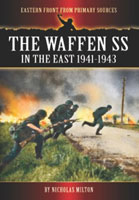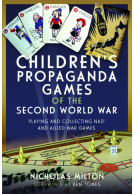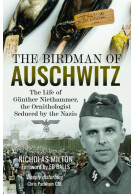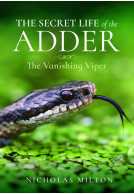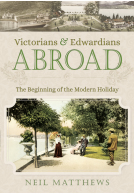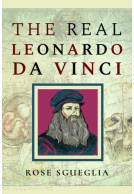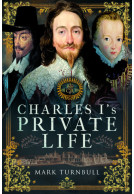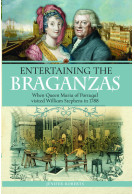The Role of Birds in World War Two (ePub)
How Ornithology Helped to Win the War
Imprint: Pen & Sword History
File Size: 24.4 MB (.epub)
Pages: 224
Illustrations: 40 black and white illustrations
ISBN: 9781526794154
Published: 7th March 2022
In the press!
"How Winkie the pigeon rescued an RAF crew: New book reveals the important role birds played in WWII" - The Daily Mail. Full article here
| Other formats available - Buy the Hardback and get the eBook for £1.99! | Price |
|---|---|
| The Role of Birds in World War… Hardback Add to Basket | £25.00 |
A love of birds has always been an important part of the British way of life but in wartime birds came into their own, helping to define our national identity. One the most popular bird books ever, Watching Birds, was published in 1940 while songs like There’ll be Bluebirds over the White Cliffs of Dover epitomized the blitz spirit. Birds even featured in wartime propaganda movies like the 1941 classic The First of the Few starring Leslie Howard where they inspired the design of the Spitfire. Along the coast flooding to prevent a German invasion helped the avocet make a remarkable return while the black redstart found an unlikely home in our bombed-out buildings.
As interesting as the birds were some of the people who watched them. Matthew Rankin and Eric Duffey counted seabirds while looking for U-boats. Tom Harrisson, the mastermind behind Mass Observation, watched people ‘as if they were birds’ while POW Guy Madoc wrote a truly unique book on Malayan birds, typed on paper stolen from the Japanese commandant’s office. For Field Marshall Alan Brooke, Britain’s top soldier, filming birds was his way of coping with the continual demands of Winston Churchill. In comparison Peter Scott was a wildfowler who was roused by Adolf Hitler before the war but after serving with distinction in the Royal Navy became one of the greatest naturalists of his generation.
With a foreword by Chris Packham CBE The Role of Birds in World War Two is the story of how ornithology helped to win the war.
...neatly allows reference to the Spitfire, popular songs and films, the foundation of the Royal Navy Birdwatching Society, the Dickin Medal, the Mass Observation project, the Chief of the Imperial General Staff, birdwatching by prisoners in the Far East and Sir Petr Scott. Together, the two books (this and The Role of Birds in World War One) compliment each other and the whole of Milton's lockdown project becomes apparent - and the charm of birds wins through.
Paul Bennett, Army Ornithological Society
This book has been another fascinating account of how war & nature are connected.
Books2cover
I really do recommend it to you.
Read the Full Review Here
An intriguing title draws you to this book. I found the content amazing as I knew very little about birds in the wars, but with the author's indepth research and passion for the subject, I cannot imagine anything was left out.
For the Love of Books
Review as featured in
Who Do You Think You Are
“A must read for anyone with an interest in World War Two history and/or ornithological history.”
The Birdbooker Report, May 2022
From the avian origins of the Government’s Mass Observation programme to record everyday life in Britain, to military personnel and Prisoners of War enjoying birdwatching in times of adversity, this book explores the numerous ways in which birds had an impact in the Second World War.
Lesley Hindley, British Trust for Ornithology
Read the full review here.
'HATS off to historian-ornithologist Nicholas Milton for this
The Lincs Bird Club Newsletter
entertaining account of the role of birds and birdwatchers
during the 1939-45 war...A word, too, for the book's range of illustrations, which excellently complement the text, and the superb jacket design by Paul
Wilkinson.'
The book is well-researched and easy to read. It is amusing in places, educational in others & I would definitely recommend it bird lovers but also to anyone with an interest in WW2.
NetGalley, Lucy Faulds
Featured as book of the month
Bird Watcher
Review as featured in:
Did studying birds really help us to win the 1939-45 war?
Jim Wright
It seems a fanciful thought, but author Nicholas Milton makes an excellent proposition for it in a new book...
full review here
a thoughtful, excellently-researched book full also of unique perspectives about wartime ornithology and its pioneers.
RSPB Community Review
Full review here
This interesting book looks at the role of various birds during World War Two, but the book also looks at the relationship between humans and birds during the war. Birds were used for numerous benefits during the war but especially used in films and books in varying locations as a patriotic symbol. Depending on where you were, you could be having contact with birds from all around the coast or at sea during fighting and convoys, you’ve also got soldiers having to have contact with birds on land and in different countries.
The History Fella
Now I’ve never been a bird watcher or anything close, but the title of the book intrigued me, and I’m really glad I got to read it as it was an interesting book and much more than you think it’s going to be. I actually feel like I’ve learnt a lot more, not just about war but a lot more about birds and the positives in little ways they bought during wartime. I would certainly recommend buying this book as it is a little out there but a really good and unusual read.
Read the full review here
Rating: 5 out of 5 stars
NetGalley, Jack Messer
The Role of Birds in World War Two by Nicholas Milton is a wonderfully entertaining and informative book that highlights the important role of the everyday, in this case birds, in raising morale during difficult times.
When I mentioned this book to a friend her first response was about pigeons. Admittedly, that was among my first thoughts as well. Milton goes far beyond just those birds directly involved in the war effort. Combining popular culture references with stories involving birds (and often other important humans) we learn just what birds meant to people.
I am not a birdwatcher hobbyist but, like so many others, I am easily captivated when I have an opportunity to observe a bird closely or a group of them going about their business. The pandemic, in much the way the war did at that time, has raised my awareness of these simple pleasures. This book shows that birds, and nature in general, are far more important to our lives than we sometimes realize.
I would recommend this to both bird lovers and those who like to read about the home front during wartime. The writing is engaging and the information is often surprising.
As featured in
The Bookseller
About Nicholas Milton
Nicholas Milton is an ornithologist, historian and a journalist. He has worked for The BBC Natural History Unit, The Royal Society for the Protection of Birds, The Wildlife Trusts and Greenpeace and has also written extensively about the Second World War for The Daily Telegraph, The Guardian, The Daily Mail and The Independent. His first book, Neville Chamberlain's Legacy, was published by Pen and Sword in 2019.









